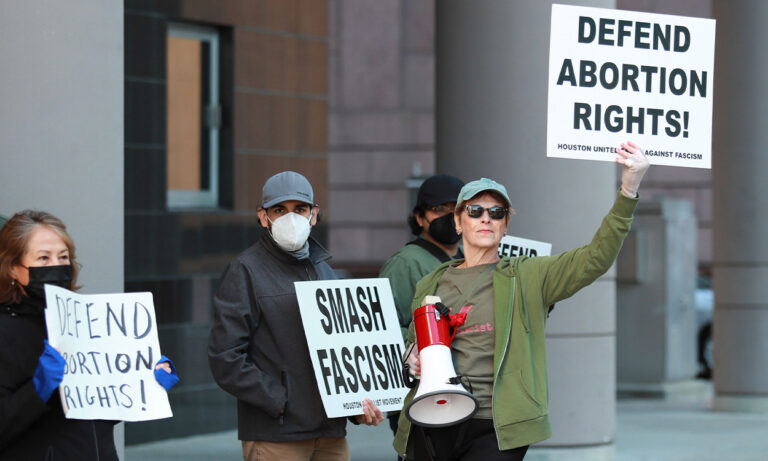Post-Roe witch hunt begins: Woman charged for taking abortion pills in South Carolina

Back in October 2021, a woman was taken to St. Francis Hospital in Greenville, South Carolina due to labour contractions. Once there, she told medical professionals that she had taken an abortion pill to terminate her pregnancy. She later gave birth to a stillborn foetus of 25 weeks and four days.
The 33-year-old woman was arrested this week under the state’s law that bans abortions after 20 weeks of pregnancy and prohibits abortions without the presence of a physician or a certified hospital member set up during the second trimester.
Greenville Police Department Spokesperson Johnathan Bragg revealed that it was the hospital that notified the police about the incident—a clear warning of the country’s crackdown on women’s rights following the Supreme Court’s decision to overturn Roe v. Wade in June 2022. The floodgates on new punishments have officially been opened.
But this heartbreaking story is only the most recent one out of numerous cases around the country, most of which have not received any kind of media attention for obvious reasons. In April 2022, Texan woman Lizelle Herrera was charged with murder for allegedly inducing her abortion, despite the fact that prosecutors acknowledged that there was no legal basis for the charges at the time.
It was later on revealed that medical professionals treating Herrera at one of the state’s hospitals had reported her to law enforcement. The Starr County Sheriff’s Office charged her with murder for “intentionally and knowingly causing the death of an individual by self-induced abortion.”
The local district attorney eventually dropped the case against Herrera, only three months before the vote to overturn abortion rights in the country. Then, in August, a Nebraska woman was charged with helping her teenage daughter terminate her pregnancy at about 24 weeks after investigators uncovered Facebook messages in which the two discussed using medication to induce an abortion, as well as plans to burn the foetus afterwards. In other words, they felt the need to burn the ‘evidence’.
Following the controversial case making headlines, Facebook said it will fight back against requests that it thinks are invalid or too broad, but went on to add that it gave investigators information in about 88 per cent of the 59,996 times when the government requested data in the second half of 2021.
The end of Roe will only further increase policing authority over pregnant people’s lives and expand the US’ prison industrial complex. And it comes as the incarceration of women is already on the rise. According to The Sentencing Project, a research and advocacy centre working for decarceration in the country, the number of women behind bars increased by more than 475 per cent between 1980 and 2020.
In prison, women face an increased chance of sexual and physical violence, as well as demeaning conditions, including the continued practice of shackling pregnant women during child birth and offering limited access to hygiene products.
Now that abortion is actually a crime in many states, it’s likely that jailing people for their pregnancy outcomes could go from an unusual event to a common occurrence. And, with institutions—both physical and online—actively filtering out abortion cases and flagging vulnerable pregnant people to the authorities, it’s feeling as though the US has officially begun a wide-scale witch-hunt.





